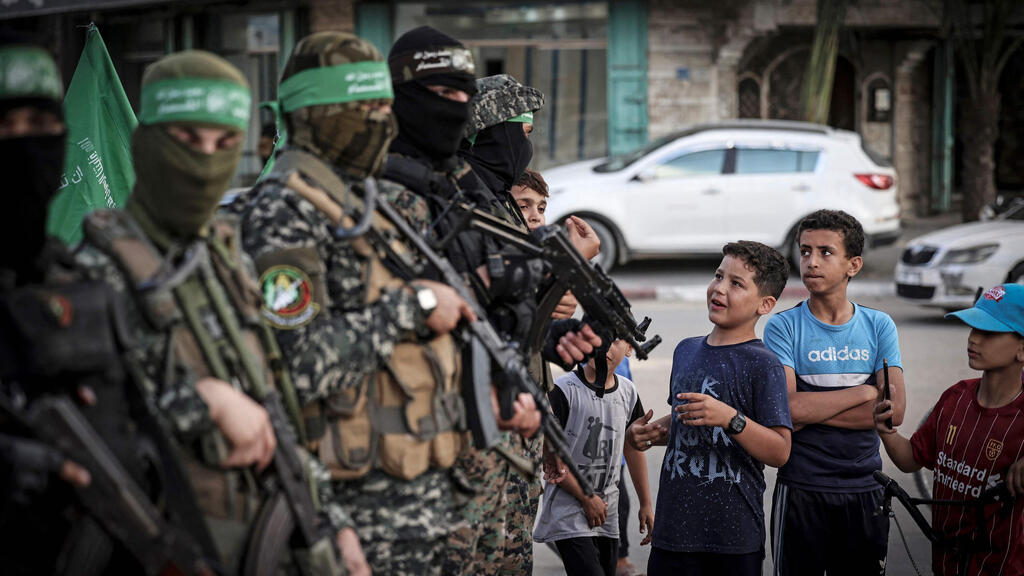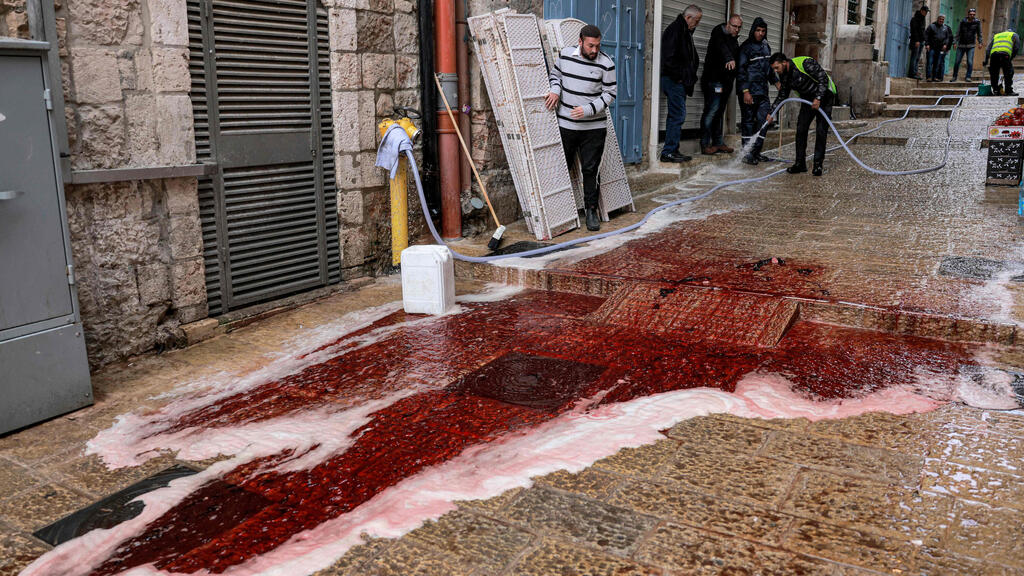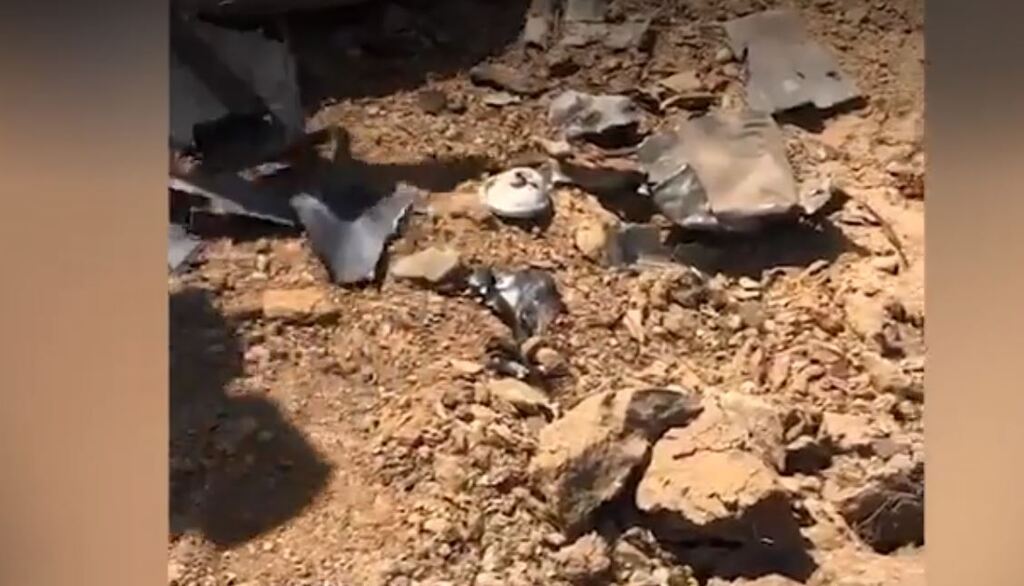Getting your Trinity Audio player ready...
Way back in October, around the time of the Jewish New Year, a Hamas terror cell in the West Bank laid the groundworks for a massive terrorist attack aimed at both IDF soldiers and Israeli civilians.
As per its plan, Hamas intended to plant hidden sniper nests in various spots around the country in order to kill as many Israelis as possible and push the West Bank into utter chaos.
The terrorist group also intended to detonate at least four explosives in Jerusalem and other cities within the Green Line - the demarcation lines separating Israeli and Palestinian territory.
Had that scenario come to pass, the IDF would have sent large forces into the West Bank to arrest a fair number of suspects, which would have surely led to violence between the army and the local Palestinian population.
This pandemonium would have served to further erode the already-shaky reputation of the Palestinian Authority - Hamas’ long time political rival - and bring an end to the political career of Palestinian President Mahmoud Abbas.
This terror plan - the largest in scope since 2014 - included 60 militants and was uncovered by Israeli authorities in mere weeks, while members of the terror cell were arrested on the eve of the plan’s execution.
6 View gallery
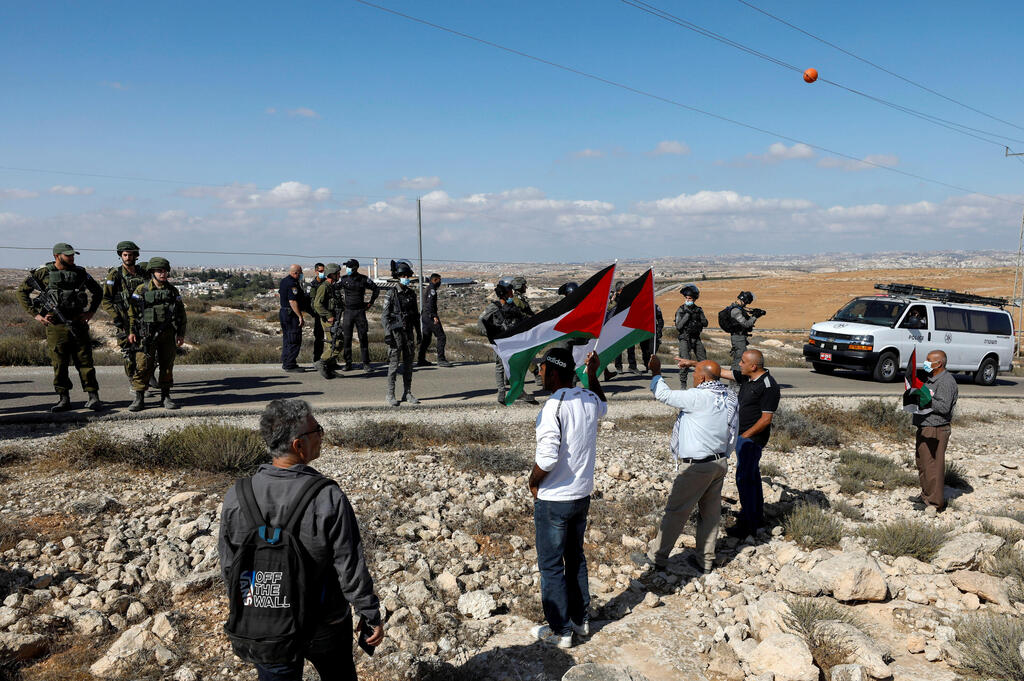

Demonstrators hold Palestinian flags as members of Israeli forces stand guard during a protest in the West Bank, October, 2021
(Photo: Reuters)
And while this botched operation was organized mainly by Hamas officials currently living in Istanbul, the heads of Hamas in Gaza definitely also played a key part in its inception.
It seems that the militants working from Gaza believed they could pull off the operation without consequences for the Palestinian enclave.
Apparently, Hamas officials in Gaza think Israel is headed by a group of oafs who want to maintain quiet in the Strip at any cost. This assumption has made the heads of the terrorist group wrongfully believe they can dictate when there is an escalation between the two sides and when there is ceasefire.
A proof of that was given to us last week, when a Hamas operative shot and murdered an Israeli man on his way to a prayer in the Old City of Jerusalem.
Soon after the attack, Hamas poured praised on the terrorist, all while ignoring the attack itself and not taking any responsibility for it. This is because, currently, Hamas wishes to differentiate between its activities in Gaza and its activities elsewhere in order to keep the enclave calm.
And Israel? Well, it’s playing right into Hamas’ hands.
The government failed to respond to the attack. It failed to impose even the slightest of sanctions meant to accentuate Israel’s dissatisfaction with Hamas’ constant call for violence against Israelis, mainly in their own capital.
During the six months that passed since the May conflict between Israel and Gaza's militant factions, the Israeli government has been patting itself on the back for having allegedly achieved “deterrence” against the terrorists.
This false sense of security is akin to the feeling that was prevalent in Israel after the Second Lebanon War in 2006, when the government believed Hezbollah was left with nothing but a few rusting missiles.
6 View gallery
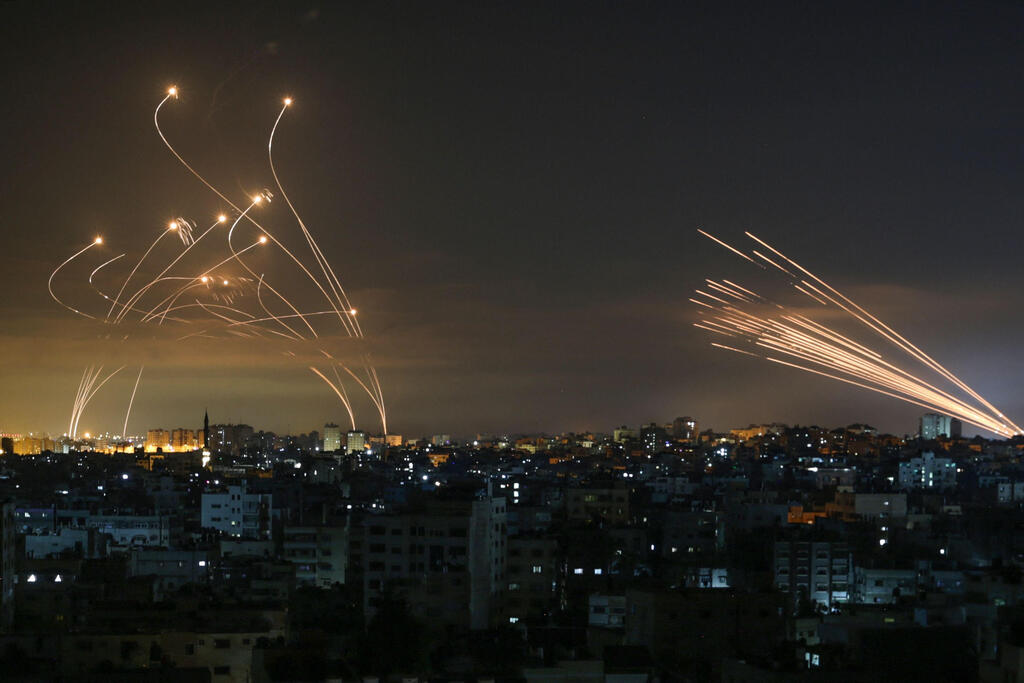

Iron Dome activates in southern Israel as rockets are fired from northern Gaza during the May Conflict
(Photo: AFP)
Hamas, meanwhile, has grown stronger over the past six months, and has in fact worked tirelessly to replenish its weapons depots following the war in May.
The terrorist organization has also started building and using advanced weaponry, such as UAVs and drones, as well as experimenting with different kind of missiles.
Only recently Israel’s Iron Dome missile defense system shot down a drone with explosives attached to it over the Mediterranean Sea. Gaza is clearly readying itself for another war.
Meanwhile, the Defense Ministry and the military are both holding on to the ramshackle agreement achieved with Gaza after the conflict as a guarantee for continued quiet.
Israel, it seems, wholeheartedly believes Hamas’ leader in Gaza, Yahya Sinwar, wants to better the lives of the people in Gaza and is therefore adamant on maintaining the agreement with Israel.
The current calm, however, allows Sinwar to strengthen Hamas’ militant wing, where the majority of the organizations’ finances have been funneled to over the last six months.
For Sinwar, improving the lives of Gaza’s citizens is nothing but a bonus to help him maintain control over the enclave and its people.
And for Hamas as a whole, the calm is nothing but a tool to stall until it's ready for another round of fighting against Israel.
6 View gallery
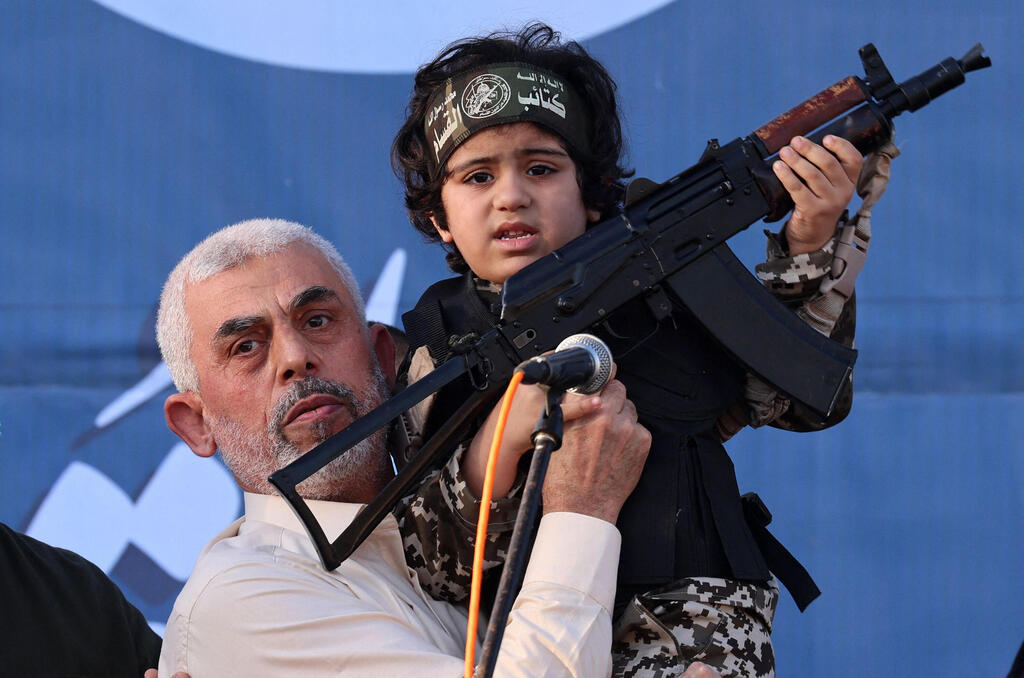

Hamas leader Yahya Sinwar holds the child of an Al-Qassam Brigades fighter, who was killed in the recent fighting with Israel
(Photo: AFP )
Meanwhile, the current attempts by the United States and Egypt to reconcile Abbas’ Fatah with Hamas in order to form a Palestinian unity government that would reach an agreement with Israel, are nothing but a fever dream of the U.S. State Department and Egyptian intelligence.
Despite being thwarted by the Shin Bet, the foiled terrorist plan is a clear and dangerous letter of intent by Hamas.
What is the response of Defense Minister Benny Gantz, Chief of Staff Lieutenant General Aviv Kochavi, or the Israeli government to such a clear and obvious threat?
Nobody can tell apparently.
First published: 23:25, 12.04.21


